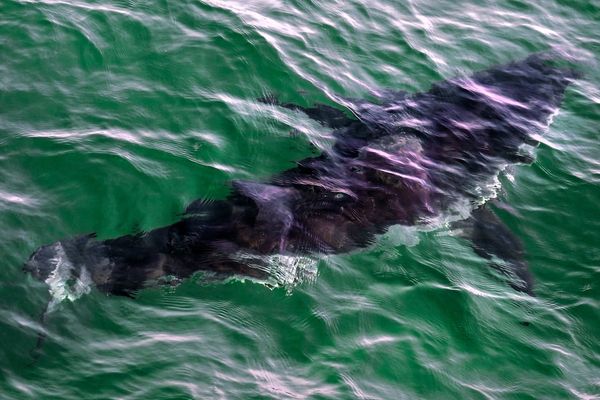
A senior US official has urged China to do more to rein in Myanmar’s military after its execution of four people, saying that “it cannot be business as usual with the junta”, as the killings drew widespread international condemnation.
State department spokesperson Ned Price told a briefing: “Arguably, no country has the potential to influence the trajectory of Burma’s next steps more so than the PRC [People’s Republic of China]”, noting that the junta “has not faced the level of economic and in some cases diplomatic pressure that we would like to see”.
Price noted in-depth discussions had already been held with China and India on how to put Myanmar back on the path to democracy.
US secretary of state Antony Blinken, who met activists from Myanmar in Bangkok this month, voiced confidence the killings would not hinder the country’s democracy movement. “The regime’s sham trials and these executions are blatant attempts to extinguish democracy; these actions will never suppress the spirit of the brave people of Burma,” Blinken said in a statement, using Myanmar’s former name.
We condemn the Burmese military’s executions of pro-democracy activists and elected leaders Ko Jimmy, Phyo Zeya Thaw, Hla Myo Aung, and Aung Thura Zaw. These executions demonstrate a further escalation in the level of regime brutality and horrific violence. pic.twitter.com/RzjPHRNBRh
— Ned Price (@StateDeptSpox) July 26, 2022
The remarks came after China, a longtime ally of Myanmar’s military, refused to comment on the executions. Foreign ministry spokesperson Zhao Lijian said Beijing “always upholds the principle of non-interference in other countries’ internal affairs”.
The execution on Monday of four prisoners including a former lawmaker from Aung San Suu Kyi’s party and a prominent democracy activist, was Myanmar’s first use of capital punishment in decades, and has heightened concerns that more death sentences will follow. Since the coup in February last year, 76 prisoners have been sentenced to death, including two children, according to advocacy group Assistance Association for Political Prisoners (AAPP) Burma. A further 41 people have been sentenced to death in absentia.
Global condemnation has followed, with attention turning to what can be done to prevent further atrocities. A joint statement from the European Union, Australia, Canada, Japan, New Zealand, Norway, South Korea, Britain and the United States called the killings “reprehensible acts of violence that further exemplify the regime’s disregard for human rights and the rule of law”.
The UN special rapporteur Thomas Andrews said he was “outraged and devastated” by the executions and called for a strong international response. “The widespread and systematic murders of protesters, indiscriminate attacks against entire villages, and now the execution of opposition leaders, demands an immediate and firm response by member states of the United Nations,” he said.
Myanmar’s junta lashed out on Tuesday against the international condemnation, saying the four executed prisoners “deserved many death sentences.”
Spokesman Zaw Min Tun insisted the men “were given the right to defend themselves according to court procedure”.
“If we compare their sentence with other death penalty cases, they have committed crimes for which they should have been given death sentences many times,” he said at a regular press briefing in the capital Naypyidaw. “They harmed many innocent people. There were many big losses which could not be replaced.”
Aung Myo Min, the human rights minister in Myanmar’s national unity government (NUG), which was formed in exile by elected politicians, ethnic minority representatives and activists, earlier rejected the allegations the killed men were involved in violence, telling the Associated Press: “Punishing them with death is a way to rule the public through fear.”
The United Nations also condemned the executions, with human rights chief Michelle Bachelet calling them “cruel and regressive”. A spokesperson for António Guterres said the secretary general opposes the death penalty “in all circumstances” and urged the immediate release of all arbitrarily detained prisoners, including President Win Myint and State Counsellor Aung San Suu Kyi.
Myanmar expert Richard Horsey of the International Crisis Group said the executions were “an outrageous act. And one that will create political shock waves, now and for a long time to come”.
Among the executed men were Phyo Zeya Thaw, a rapper and former lawmaker from Aung San Suu Kyi’s party, and the prominent democracy activist Kyaw Min Yu, known as Jimmy. They were accused of conspiring to commit terror acts and were sentenced to death in January in closed trials.
The two other executed men – Hla Myo Aung and Aung Thura Zaw – were accused of killing a woman they suspected was a military informer in Yangon, according to Agence France-Presse.
Local media reported that the families of the men had travelled to Insein prison in Yangon demanding to see their loved ones’ bodies. Prison officials refused to hand the body over to relatives, a source close to the family of Kyaw Min Yu said, despite prison regulations stating it must do so unless there is a special reason.
A total of 14,847 people have been arrested since the coup, while 11,759 remain in detention, according to AAPP Burma.







